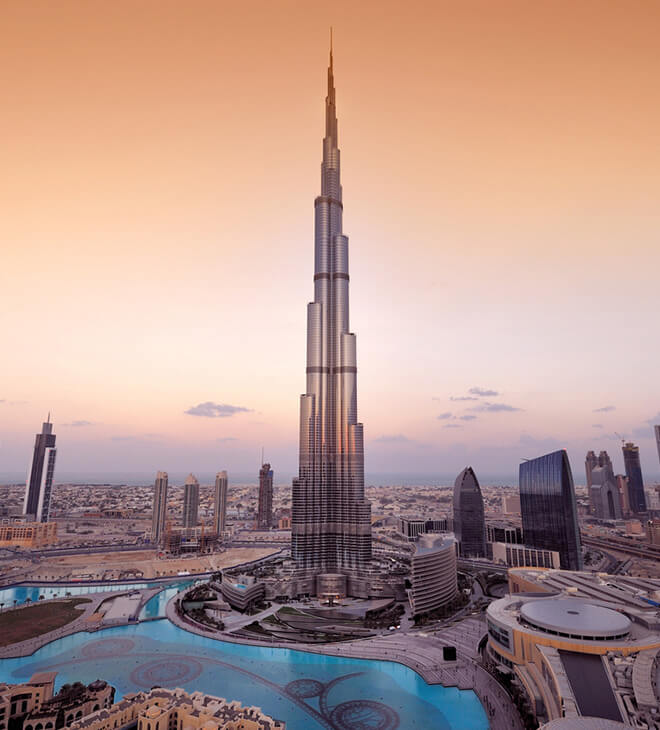Dubai named one of the world’s top 10 most powerful cities for second consecutive year

Dubai has consolidated its position among the world’s most powerful cities, with the emirate securing eighth place for the second year in a row in the 2024 Global Power City Index (GPCI).
The recognition underscores Dubai’s hard-earned reputation as a global hub for finance, culture, and innovation – key factors that have drawn investors, businesses, and talent to the city from across the world.
Published annually by Japan’s Mori Memorial Foundation, the GPCI evaluates cities across six key criteria – Economy, Research and Development (R&D), Cultural Interaction, Liveability, Environment, and Accessibility. In this year’s rankings, London, New York, and Tokyo retained the top three positions, with Dubai positioned as the only Middle Eastern city in the top ten.
Dubai’s ranking is testament to the decades of planning and investment made by the city’s leaders in sectors critical to global influence. The city ranked 15th in Economy and a remarkable 4th in Cultural Interaction, highlighting its ability to balance economic strength with cultural dynamism. Dubai also ranked 10th in Accessibility, thanks to its world-class infrastructure and status as a global aviation hub.
A magnet for businesses and entrepreneurs
According to the report, Dubai’s standing as a global business hub is central to its GPCI ranking. The emirate’s pro-business environment, characterised by low taxes, political stability, and cutting-edge infrastructure, makes it a preferred destination for multinational corporations and startups alike. Its free zones, like Dubai International Financial Centre (DIFC) and Dubai Silicon Oasis, have nurtured an entrepreneurial ecosystem that is second to none worldwide.
Dubai’s top four ranking in the report’s Cultural Interaction survey also reflects the emirate’s growing influence globally. From hosting Expo 2020 to world-renowned art fairs like Art Dubai, the city has made itself a destination for international visitors and investors. Luxury tourism also plays a key role: Dubai’s array of ultra-luxury hotels, Michelin-starred restaurants, and record-breaking attractions consistently draw millions of visitors from across the world.
Regional dominance in connectivity
Accessibility remains one of Dubai’s core strengths, with the city ranking 10th in this category. Dubai International Airport is well established as the world’s busiest international air hub. Emirates Airline, which is recognised among the largest international passenger and freight carriers, along with the city’s investment in expanding public transportation, make Dubai a critical node in global trade and travel.
The city is also leading the world in the development of next-generation, autonomous transportation services, from hyperloop projects to AI-powered traffic management systems.
How Dubai stacks up against its rivals
While Dubai continues to make significant strides, it faces tough competition from established giants. London, which retained its top spot in the report for the 13th consecutive year, continues to dominate due to its cultural impact and transport networks, the report states. However, high inflation and post-Brexit adjustments have tempered its momentum. New York, in second place, remains one of the world’s top financial hubs, excelling in the Economy and R&D categories, though challenges relating to liveability and environmental metrics persist.
Third-placed Tokyo made significant gains across the Cultural Interaction and R&D metrics, highlighting its efforts to boost international tourism and innovation in recent years. Singapore and Paris rounded out the top five respectively, with the latter receiving a boost from hosting the 2024 Summer Olympics in the Cultural Interaction and Accessibility segments.
The 2024 report also highlights Dubai’s enviable reputation for successfully navigating global challenges. The emirate has weathered economic headwinds, including rising interest rates and geopolitical instability, while still attracting foreign direct investment and talent. Its continued focus on sustainability, through initiatives like the Dubai Clean Energy Strategy 2050, positions it to address future urban challenges such as climate change.
Furthermore, major socioeconomic initiatives such as the Dubai Economic Agenda (D33), which aims to double the size of the emirate’s economy over the next decade, and the 2040 Urban Master Plan, which provides a roadmap for sustainable urban development, showcase Dubai’s vision to establish itself as the world’s most connected, sustainable, and liveable city.



